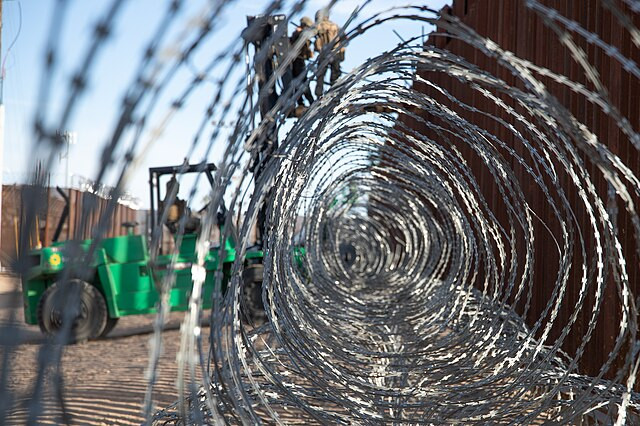President Biden has signed an executive order aimed at addressing the situation at the U.S. southern border. However, the move has sparked debate over its effectiveness, with critics questioning whether it represents a meaningful step or mere political theater.
The new executive order comes as border security remains a top issue for American voters. Biden's decision is seen by some as a bid to regain control over the chaos at the border. Yet, many, including Rodney Scott, a former U.S. Border Patrol chief, argue that the order is insufficient. Drawing on his nearly 30 years of experience, Scott highlights that past administrations from Clinton to Trump have implemented more stringent deterrence strategies that yielded significant results.
"In 1992, we had thousands of arrests each day and significant narcotics seizures," Scott recalls. "But we lacked meaningful control over our borders. It was under the Clinton administration in 1994 that we established the first real border security strategy, focusing on preventing illegal entries and reestablishing control." This strategy included Operations Hold the Line in El Paso and Gatekeeper in San Diego, which, despite being resource-intensive, proved effective in curbing illegal entries.
Scott emphasizes that the deterrence strategy, which involved a combination of visible deterrence, infrastructure improvements, and prosecutorial measures, was successful in reducing illegal entries. "By December 2020, we had the most secure border in our nation's history," he asserts. However, he argues that Biden's shift away from this approach in favor of a reactionary strategy has led to a resurgence of illegal immigration.
Immediately following his inauguration, Biden ended the migrant protection protocols and halted border security infrastructure improvements. "Biden's policy shift triggered a tsunami of illegal immigration," Scott states, citing over 10 million illegal entries documented since January 2021, including approximately two million known got-a-ways.
Meanwhile, on the ground, migrants are facing increasing uncertainty. Abigail Castillo, a 35-year-old migrant from Oaxaca, Mexico, recounted her experience attempting to cross the border with her toddler son. "I heard that they were going to do it or were about to do it," she said, referring to the new asylum rules. Unfortunately, Castillo and others like her missed the deadline and were subject to the new deportation rule.
Under the new measure, asylum processing is halted when arrests for illegal crossings exceed 2,500 in a day. This has created a climate of uncertainty among migrants, many of whom have undertaken perilous journeys in hopes of finding safety in the U.S. Sergio Franco, who traveled from Ecuador, expressed confidence that his plea for asylum would be considered, despite the new rules.
However, the new rules have significant implications for migrants. Those who express fear for their safety if deported will be screened by U.S. asylum officers, but under stricter standards. This has raised questions about whether the new measure can effectively deter large-scale migrant entries, given Mexico's limited capacity to take back non-Mexican migrants and the logistical challenges of deporting migrants to distant countries.
In Matamoros, Mexico, Esmeralda Castro, a Salvadoran migrant, voiced concerns about the impact of the new rules on the already overwhelmed U.S. Customs and Border Protection's online app, CBP One, used for scheduling asylum appointments. "Imagine what's going to happen with what they've done. The system is going to collapse again," she said.
Despite the challenges, some migrants remain determined to seek asylum through legal channels. Juan Daniel Medina, from the Dominican Republic, has persisted with CBP One despite months of unsuccessful attempts. "It's the correct way because that way you do everything legally," he said.
As the new rules take effect, the situation at the border remains tense. Migrants like Jesus Gomez of Colombia, who was among the last to be released to seek asylum, reflect on the uncertainty of the current climate. "It's a very difficult thing to navigate," he said, waiting for his wife before heading to Boston.






